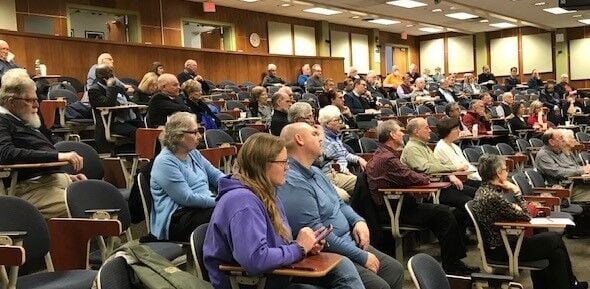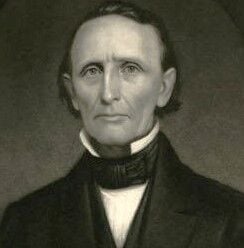
6. In the second place, he replies with a public example and a similar work, when he says: “By whom do your sons cast them out?” As if he would say: “Is this not simple idiocy? Just what you praise in your sons, you condemn in me. Because your sons do it, it is of God; but because I do it, it must be of the devil.” So it is in this world. What Christ does, is of the devil; if some one else did it, it would be all right. Thus the tyrants and enemies of the Gospel do now, when they condemn in us what they themselves do, confess and teach; but they must proceed thus in order that their judgment may be publicly approved, when they are condemned by all justice. The sons, of whom Christ here says that they drive out devils, were, I think, certain exorcists among the people, for God, from the beginning, had given this people manifold spiritual gifts and he calls them their “sons,” as though to say: I am the Son of God and must be called a child of the devil, while those who are your sons, begotten by you, do the same things and are not to be considered children of the devil.
7. “Therefore shall they be your judges,” that is, I appeal to them. They will be forced to decide that you wrongfully blaspheme me, and thus condemn yourselves. For if one devil does not drive out another then some other power must do it that is neither satanic nor human, but divine. Hence the words: “But if I by the finger of God cast out demons, then is the kingdom of God come upon you.” This finger of God is called in Matthew 12:28 the Holy Ghost, for the words read thus: “But if I by the Spirit of God cast out demons,” etc. In short, Christ means to say: If the kingdom of God is to come unto you, the devil must be driven out, for his kingdom is against God’s kingdom, as you yourselves must confess. But demon is not driven out by demon, much less by men or the power of men, but alone by the Spirit and power of God.
8. From this follows that where the finger of God does not cast out the devil, there the devil’s kingdom still exists; where Satan’s kingdom still exists, there the kingdom of God cannot be. The unavoidable conclusion then is that, as long as the Holy Spirit does not enter our hearts, we are not only incapable of any good, but are of necessity in the kingdom of Satan.
And if we are in his kingdom, then we can do nothing but that which pleases him, else it could not be called his kingdom. As St. Paul says to Timothy: “The people are taken captive in the snares of the devil unto his will” 2 Timothy 2:26. How could Satan suffer one of his people to take a notion to do something against, and not for, his kingdom? Oh, it is a striking, terrible and powerful statement that Christ here admits such a dominion, which we cannot escape except by the power of God; and that the kingdom of God can not come to us until that kingdom is driven out by divine, heavenly power.
9. This truth is proved in the case of this poor man, who was bodily possessed of the devil. Tell me, what could he and all mankind do to free him from the devil? Without a doubt, nothing. He had to do and suffer just as his master the devil willed, until Christ came, with the power of God.
Now then, if he could not free himself from the devil as to his body, how could he, by his own power, deliver his soul from Satan’s spiritual dominion? Especially is this the case since the soul, because possessed of sin, is the cause of all bodily possession as a punishment, and sins are more difficult to remove than the punishment of them, and the soul is always more firmly possessed than the body. This is proved by the fact that the devil permits the body to have its natural powers and functions; but he robs the soul of reason, judgment, sense, understanding, and all its powers, as you readily see in the case of this possessed man.
10. He answers them in the third place, by a comparison taken from life, namely that of a strong man overcome by one stronger, and robbed of all his armor and goods etc. By this he testifies also that no one but God can overcome the devil, so that again no man can boast of being able of himself to drive out either sin or the devil. Notice how he pictures the devil! He calls him a mighty giant who guards his court and home, that is, the devil not only possesses the world as his own domain, but he has garrisoned and fortified it, so that no one can take it from him. He rules it also with undisputed sway, so that it does whatever he commands. Just as little as a house or court may withstand or contend against the tyrant who is its master, can man’s free will and natural powers oppose sin and Satan, that is, not at all; but they are subject to them. And as that house must be conquered by a stronger man and thus wrested from the tyrant, so must man also be ransomed through Christ and wrested from Satan. We see again, therefore, that our works and righteousness contribute absolutely nothing toward our salvation; it is effected alone by the grace of God.

























